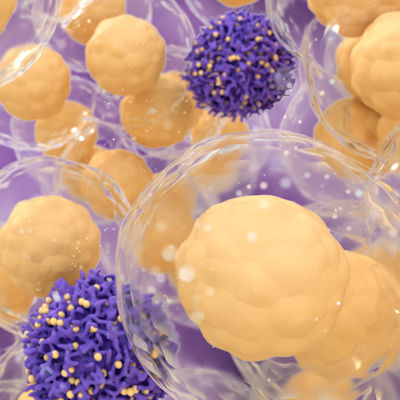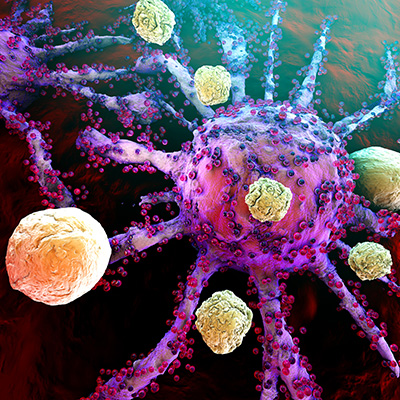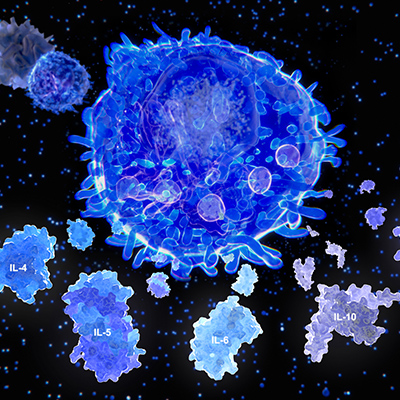August 18, 2022 -- Using cryo-electron microscopy (cryo-EM), scientists from Goethe University Frankfurt (in collaboration with the University of Oxford and the Max Planck Institute of Biophysics) have for the first time been able to visualize the whole T-cell receptor (TCR) complex with bound antigen at atomic resolution.
Writing in an August 18 article in the journal Cell, the authors noted that comparisons of the ligand-bound and unliganded receptors -- along with molecular dynamics simulations -- indicate that T-cell receptors can be triggered in the absence of spontaneous structural rearrangements.
The researchers contend that the cryo-EM structure of the fully assembled TCR complex with a tumor-associated peptide/major histocompatibility complex (MHC) ligand provides important insights into the biology of TCR signaling, helping to understand a fundamental process which may pave the way for novel therapeutic approaches targeting severe diseases.
"Our structure is a blueprint for future studies on T-cell activation," Robert Tampé, PhD, director of the Institute of Biochemistry at Goethe University Frankfurt, said in a statement. "In addition, it's an important stimulus for employing the T-cell receptor in a therapeutic context for treating infections, cancer, and autoimmune diseases."
Copyright © 2022 scienceboard.net









